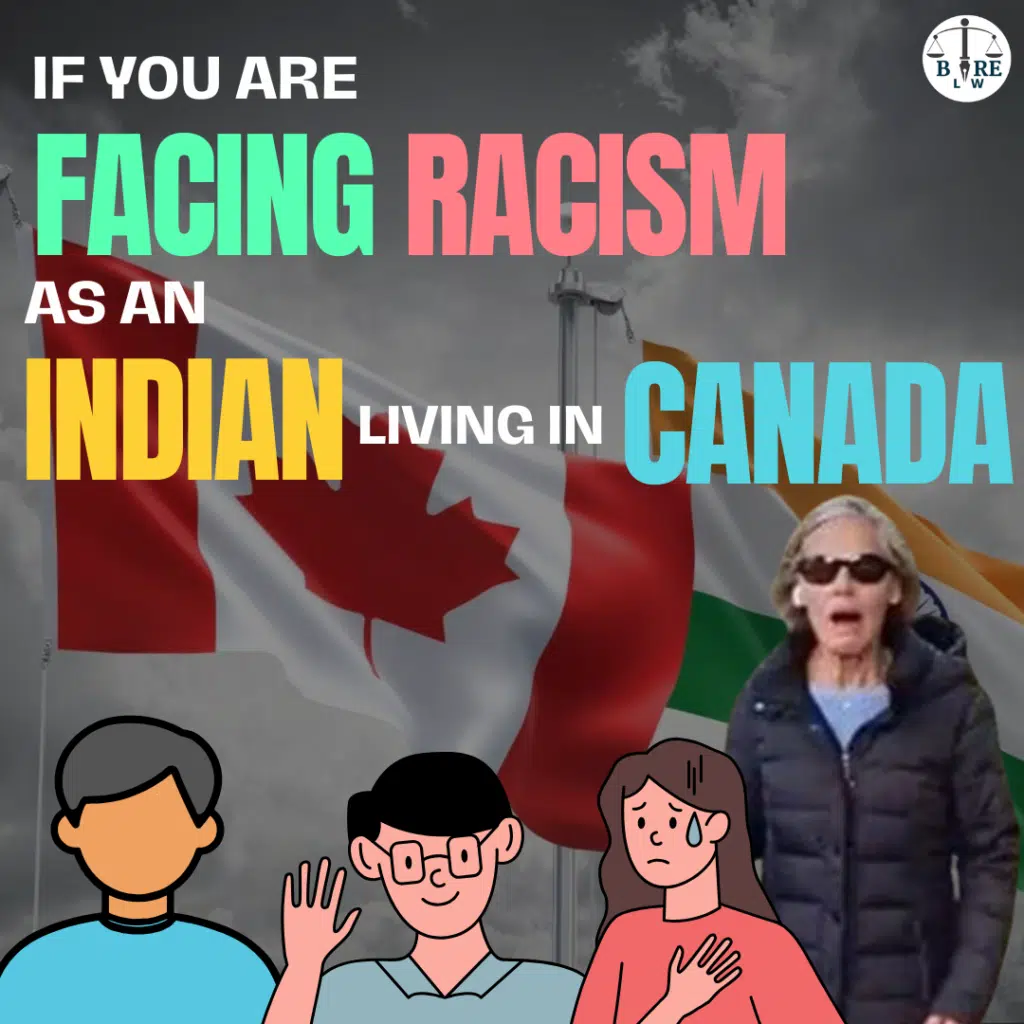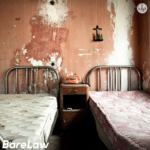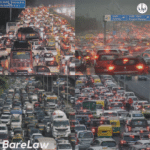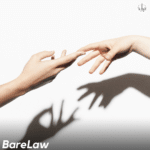Synopsis:
The article, Facing Racism in Canada as an Indian: Understanding, Responding, and Navigating Legal Protections, addresses the experiences of Indian immigrants facing racism in Canada, particularly in the wake of increasing hate crimes. It provides an overview of how racism manifests in everyday life, including workplace discrimination, verbal and physical abuse, microaggressions, and systemic biases. The article highlights the legal protections available to individuals experiencing racism, such as the Canadian Human Rights Act, the Criminal Code of Canada, and provincial human rights codes. Practical steps are offered for responding to racist incidents, including staying safe, documenting evidence, reporting incidents, and seeking support through legal avenues and community organizations. Ultimately, the article calls for a collective effort to combat racism and foster inclusivity in Canada.

If you are facing racism as an Indian living in Canada
Diversity and the acceptance of immigrants from around the world are some of the things that countries celebrating it, like Canada, offer so often. India is among the largest immigrant groups, and while many are educated, professional, or familial there. But racism has become more frequent — it’s happened to the Indian community and others.
As an Indian living in Canada, you might have expected to live in a welcoming society. The reality is that there will be moments one won’t like encountering racism directly or indistinctly. Regardless of whether it’s from discriminatory comments or xenophobic attitudes, such racism can affect your sense of belonging and well-being. The best part about racism is that if you’re experiencing it, you’re not alone, and you can do something about it.
Understanding the Rise of Racism in Canada
In recent years, hate crimes in Canada have escalated. Data from Statistics Canada shows that since 2019 police-reported hate crimes have nearly doubled from 2019 to 2022. Waterloo Region, which is home to many South Asian immigrants, had the highest rates of hate crimes per capita in Canada in 2023.
Unpublished. This is not only a national issue; it is also a reflection of local tensions—tensions that plague regions with large immigrant populations, like Ontario, British Columbia, and Alberta.
There is probably a reason for this rise that is fueled by the changing socio-political landscape. Xenophobia has been fuelled by global political events, immigration trends and economic uncertainties. While Indian immigrants have made a valuable contribution to Canada’s economy, these Indian immigrants have unfortunately become the victims of this foolish anger in situations that have resulted in racist confrontations with Indian origin individuals.
Experiencing Racism: What It Looks Like
Although it can take the form of microaggressions or more overt racism toward Indians, for example. Some common experiences include:
- Workplace Discrimination: Hiring, promotions, and pay are unfair to many Indian immigrants. Cultural stereotypes, such as assumptions about someone’s accent or professional skill, may also affect them.
- Verbal and Physical Abuse: The incidents experienced by Ashwin Annamalai in Kitchener-Waterloo aren’t shocking; they aren’t isolated. In other words, such encounters can occur on the street, in public areas or online.
- Microaggressions: These are things like when someone compliments you for speaking good English, or they ask you, ‘You’re from Canada?’ or whenever someone asks you that, what is implied is that you don’t belong in Canada. These (seem) harmless remarks mask much deeper biases.
- Systemic Racism: It refers to institutional practices that have tended to discriminate against some people. For instance, some reports exist of Indian international students being marginalized in educational settings or being blocked from accessing services because of their immigrant status.
How to Respond to Racism
If you are a victim of racism in Canada, you should know how to protect yourself from and resolve the situation. Here are a few steps to consider:
1. Stay Calm and Assess the Situation
Of course, when you are angry or defensive during the heat of the moment. But that doesn’t mean that your safety should never come first. When racism or racist behaviour happens in a public space or escalates to physical violence, take a step away from it and get help now.
2. Document the Incident
If you’re safe enough to document the incident, record video evidence or take notes. For hate crimes or workplace discrimination, if you decide to report the behaviour, you can use it to build a case.
3. Report the Incident
Canada has strict laws against hate crimes and discrimination. If you feel physically threatened, you can report incidents of racism to the police. In addition, workplaces, schools, and public institutions already have policies that deal with discrimination. If you do file a formal complaint, it can ensure that the problem is addressed and that perpetrators are liable.
For example, the Waterloo Regional Police Service encourages victims and witnesses to report hate-motivated crimes because underreporting is something that continues to occur.
4. Seek Support
Racism can really do a number on you mentally and emotionally. Emotional support and practical advice can be acquired by speaking to a counsellor, joining support groups or contacting local Indian community organizations. Victims of racism have many cities with advocacy groups and legal aid services dedicated to helping them.
5. Educate and Raise Awareness
Combatting racism is about raising awareness. Annamalai shared her story on social media, and every time you share your story, it helps shed light towards the issue and encourages others to speak up. The work of initiatives like the #HateHurtsWR campaign in Waterloo to raise public awareness and promote inclusive practices has been effective.
Legal Protections Against Racism in Canada
There is a strong policy of racism protection in Canada at the federal and provincial levels. Whatever the setting, whether it’s at work, at a place of public accommodation, or online, there’s help to be found.
The Canadian Human Rights Act
The Canadian Human Rights Act forbids discrimination based on race, national or ethnic origin, colour,… It applies to federally regulated entities, notably banks, telecommunications companies and federal departments. The Canadian Human Rights Commission will respond to complaints of racism in any federally regulated space.
The Criminal Code of Canada
The Criminal Code of Canada criminalizes hate crimes (verbal abuse, physical violence due to racial bias). Hate propaganda and the public incitement to hatred towards identified groups, such as racial or ethnic minorities, are covered by Sections 318 and 319 of the Criminal Code. Promoting hate can lead offenders to face fines or imprisonment.
Filing a police report is needed in cases where you’re subject to hate speech or violence. Waterloo Regional Police Service and law enforcement agencies are working to combat hate motivated crimes, and if you are a victim to report that.
If legal penalties are achieved, serious consequences await perpetrators.
Provincial Human Rights Codes
Human rights codes in each province in Canada prohibit discrimination in the workplace, housing and service. For example, Ontario’s Human Rights Code prohibits both racial discrimination and racial harassment in employment, services, and housing. However, if you experience racism in these areas, you can file a complaint with the Ontario Human Rights Commission, leading to mediation, settlements, or tribunal hearings.
The Role of Labor Laws
It’s not just a human rights issue, it’s a labor issue. Racism in the workplace is a problem. Canadian labour laws prohibit racism and the types of harassment that it breeds. If you’re a victim of racism at work, the employer is obliged to help direct and resolve the situation. For example, when the Occupational Health and Safety Act in Ontario says employers must provide a safe and harassment-free workspace, this includes racism.
4. Seek Support
Having to face racism is depleting your mental and emotional health. This is where emotional support and perhaps practical advice can be had through speaking to a counsellor, joining support groups or connecting with local Indian community organizations. A lot of cities have advocacy groups and legal aid work that helps victims of racism.
5. Educate and Raise Awareness
Fighting racism is about raising awareness. Annamalai tweeted about her story, and it’s… working: she helped shine a light on the issue and encouraged others to speak out. Through initiatives like the #HateHurtsWR campaign in Waterloo, the public has raised their awareness and promoted inclusive practices.
Moving Forward: A Call for Change
Canada’s greatest strength is its multicultural society, but apparently, there is still a lot of catching up to do so the majority of Canadians feel safe and included. Removing racism equally requires the work of people, communities, and institutions. Anti-racism initiatives continue to require governments and organizations to invest, ensure diversity in leadership, and create inclusive environments.
Being an Indian in Canada can feel incredibly isolating when you’re being racist to people. Standing up for something you believe in, asking for support, and educating others is something you can do as part of a movement to end infighting and instead start adding to making our society a more inclusive place where diversity isn’t weaponized.
If you’re being racist, remember that other people are too. There is no shame in speaking up and reaching out for help, in building a life in Canada that is faithful to your heritage and realizes in its future your rightful place.
FAQs:
1. What legal protections do I have if I face racism in Canada? Canada provides multiple legal protections against racism through the Canadian Human Rights Act, the Criminal Code of Canada, and provincial human rights codes. These laws prohibit discrimination based on race, ethnicity, or national origin, and they allow individuals to file complaints with appropriate human rights commissions or report hate crimes to the police.
2. What should I do if I face racism in a public place? If you experience racism in public, prioritize your safety. If necessary, distance yourself from the situation and seek help. Document the incident, if safe, and report it to local authorities or human rights bodies.
3. How can I report a hate crime in Canada? You can report hate crimes to the police. In some regions, like Waterloo, the police have launched campaigns encouraging victims and witnesses to come forward. Documentation such as videos, photos, or witness testimonies can strengthen your report.
4. What support is available if I face workplace discrimination? Workplace discrimination is prohibited under federal and provincial labor laws, such as Ontario’s Occupational Health and Safety Act. You can report workplace racism to your employer, file a complaint with provincial human rights commissions, or seek legal support.
5. What is the role of the Criminal Code in addressing hate crimes? The Criminal Code of Canada addresses hate crimes through sections 318 and 319, which make it illegal to promote hate against identifiable groups, including racial and ethnic minorities. Offenders may face fines or imprisonment for hate-motivated actions.



